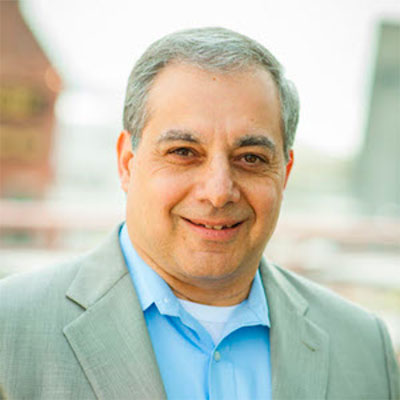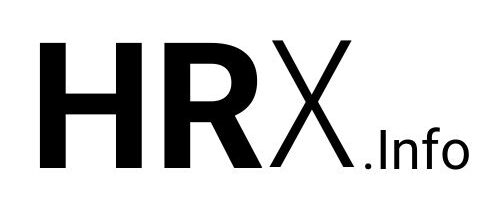
Executive Vice President
There aren’t many people who can say they were there when it all began, but those folks aren’t named Craig Babigian.
In fact, his simple query a generation ago caused a snowball effect that helped get the ball rolling on the robust PrismHR solutions you and your clients rely on today.
Today’s business world is all about working smarter—not harder—but it wasn’t always that way.
In the mid-’80s, the average U.S. executive worked just under 57 hours a week, according to a Robert Half survey at the time. “As you rise to the top,” Robert Half, the company’s founder told Newsweek back then, “there’s no way out. It is the penalty for success and high earnings. As you rise to the top, the job gets so complex it is almost impossible to do in 35 hours.”
We’re guessing Craig, PrismHR’s executive vice president, worked some long hours in those days, too, but in the age of artificial intelligence and mobile capability today’s workforce is more technologically advanced—especially in the HR outsourcer space. State-of-the-art solutions make processes much more efficient and capabilities much more robust and scalable.
As Craig moves closer to retirement, which will happen the week of June 8 as PrismHR LIVE takes place in Orlando, we interviewed the industry stalwart to document an oral history of PrismHR’s evolution as well as the advancements that have helped fuel growth in the Professional Employer Organization (PEO) industry over the past few decades.

To celebrate National PEO Week, here is an edited transcript of that interview.
PrismHR: Let’s start with PrismHR’s predecessor, F.W. Davison & Co. What were they doing before they got into the PEO space?
Craig Babigian: F.W. Davison, which was initially called Micro Business Systems, started in 1985. When Fred Davison started his business as a one-person shop, he was basically consulting and helping small businesses. I was looking for a company to help us, and I actually didn’t end up using Fred at the beginning. I wanted a bigger shop to help me.
What kind of company were you working at?
Craig Babigian: I was heading up the business side of an armored car company, which is a very unique industry that really didn’t have the necessary technology to run its operations. We had identified what we wanted to do, and I was looking for someone to develop it. The route I had taken just didn’t work out, and I eventually called Fred back in. I really started working with Fred helping us develop tech, and he had similar gigs with other small businesses. One was an ice cream manufacturer.
We had two companies, one in Massachusetts and one in New Hampshire. We had probably 80 employees in total, and I wanted to bring payroll in house because the majority of the cost was labor. I wanted to get a better handle on what costs were, better reporting, so I figured I needed to bring in an in-house payroll system. I kept bugging Fred about it. Do you know any good systems out there that I could purchase to bring in-house? He had experience with payroll, so he said, ‘You know, I’m looking to get into a niche. What if I write one?’
I said, ‘Go ahead,’ and he did. And we were the beta site for it, and that’s kind of how the early days of payroll started. Fred and I became friends, and we always worked well together.
He started getting other small businesses interested in using it, and we saw that that was going to be a business—being a tech provider for payroll, HR benefits. Back then, people bought technology to run in-house. There was no running on the cloud or anything like that. Then we started getting a bunch of resellers who had distribution packages, light manufacturing as well as airport systems that needed a payroll/HR system. We had a relationship with them, so we had resellers selling it. I eventually teamed with Fred.
Who were some of your early customers?
Craig Babigian: Our clients were standalone companies running payroll/HR for themselves either through resellers or we sold something directly. Our biggest client at the time was ServiceMaster. Their home health care division had about 1,000 or 1,5000 employees then.
We also started picking up furniture stores, but one of our marquee clients was the World Wrestling Federation [now World Wresting Entertainment (WWE)] in Connecticut.
So how did Davison get involved in the PEO industry?
Craig Babigian: We got a message from a PEO in Florida. It was left on our recorder. PEOs weren’t known in the northeast. We had no clue what a PEO was, never heard of it. But the business model sounded interesting to us. They do payroll, benefits and HR. Great.
They heard about us through some corporate clients of ours down in Florida.
So we went down there, and we showed them what we had. At that point, our technology wasn’t PEO-specific, but luckily for us, the way it was designed would be able to transition to fit that space.
They had 10,000 worksite employees, and they liked what we pitched them. They basically said, ‘We don’t want to own the technology. We want to pay you, and you can sell this to others.’ And how smart were they? People who have developed technology for themselves, it’s great day one and they own it, but the problem is the upkeep and the expense. They knew they didn’t want that.
They wanted to share the cost with others in the industry for continual updates and innovations.
When did things start to take off?
Craig Babigian: We became NAPEO members in 1997. We went to the first conference that year in San Francisco. And we walked in confidently—‘Wow, wait till they see us.’
The exhibit room was packed, but no one would even talk to us. I thought, ‘Oh my goodness. What did we get ourselves into?’
Because you were considered outsiders?
Craig Babigian: Exactly. It still happens today to new vendors in the space. A lot of vendors come into the space and see it as a huge opportunity. They think they’re gonna hit it big time in the first year. It takes some time for newcomers to be accepted in this space because they want to see a commitment to the industry.
While the conference wasn’t going as planned, we still had this big client and some others who had signed up. Then we started getting others. One of my responsibilities was sales, but I only spent maybe 10% of my time selling. It was really just doing demos presenting what we had technologywise. It was all back office back then.
We were probably the first ones in the space to have a client-facing solution. It was a timesheet entry and a couple of other things for clients to do.
When did you decide to host your own conference?
Craig Babigian: By 2000 we started getting a decent number of clients, and that’s why we decided, ‘Well, we probably should also have our own conference.’ It was mainly to do training. Very different than what our conference is today.
Were you confident the conference would be a success?
Craig Babigian: Yeah, because we knew from our clients that we got their attention, and there was interest and things were going well. Would we get people to come? That wasn’t a concern at all.
Where did the name ScorPEO come from, which was the original name of PrismHR LIVE?
Craig Babigian: I don’t remember how that came about exactly, but it was a play on PEOs and had the word “score,” meaning success. The name was later changed to HR Pyramid when we realized that we started having clients who were outside of the PEO space in ASO.
When you’re talking about milestones in PrismHR’s history, was bringing Gary Noke on board one of them?
Craig Babigian: Without a doubt. This company has been very fortunate with its leaders. They knew what they were good at and when it was time to transition. That all started with Fred. Ninety percent of startups fail within the first five years. Only 1% of startups have the success that PrismHR has experienced. It takes a special person to make that happen—and that person was Fred.
For us to get to the next level, we needed someone with that DNA of taking a company to the next level. There had to be drastic structural changes, and quite honestly, to bring in our first investor. Investors want to see a company that is set up to scale. Gary had experience in multiple growth companies. That’s what Gary brought to the table.
Gary’s background is in sales and marketing. He learned about all these other areas, but he didn’t grow up as a technologist. It makes sense now having that structure together that the next leader be someone who really has those technology chops. That’s why Kevin Andrews was brought in. Gary knew that the company needed strong technology-focused leadership. Kevin worked in the HR tech space for many years in high-growth companies. He knew the tech we needed to advance our performance for our customers by leveraging some of the latest technologies available.
When did it become apparent that a deal would be made with Vensure to accelerate PrismHR’s evolution?
Craig Babigian: Consolidation is a constant in this industry. That means revenue reduction for vendors even though there’s pressure to deliver more. Gary realized you need proper funding to meet an increased demand for delivery while controlling costs for our customers.
The partnership with Vensure accomplished that. That was the thesis, and it worked even better than I expected.
Folks in the industry said the proof will be in the pudding. And now I tell people, ‘Well, we’re three years in, what’s the pudding like?’ We have never delivered so much tech advancements as we have in the past three years.
How would you like people to remember your PrismHR legacy?
Craig Babigian: [Laughs] Most people think I’m already retired. You know, there’s a lot of things I can’t do. I could never have been the CEO of a company. I think where I shine is understanding business needs. I always try to put myself in other people’s shoes—whether that’s the SMB or one of our customers.
I’ve always lived my life with this model with noble intent. If you do good by them, all things will work out.
What are you most proud of?
Craig Babigian: While we serve more than PEO companies today, I am proud of what we have done to advance the PEO industry. We continue to innovate our technology to help PEOs and their clients succeed. I am proud of the role we play in supporting the PEO industry in general and our continuing commitment to the PEO space.
As I look at PrismHR today, I see all the great people we have in this company. I am proud of this company, and I am excited about what the future holds. This company is set up for long-term success, and the HRO industry will continue to benefit from our innovation and commitment.
And they have. The proof is in the “pudding.” Come see Craig and the rest of the team at PrismHR LIVE in Orlando to learn about the latest HR tech advancements.
James Tehrani is PrismHR’s content marketing manager. He is an award-winning writer based in the Chicago area.










